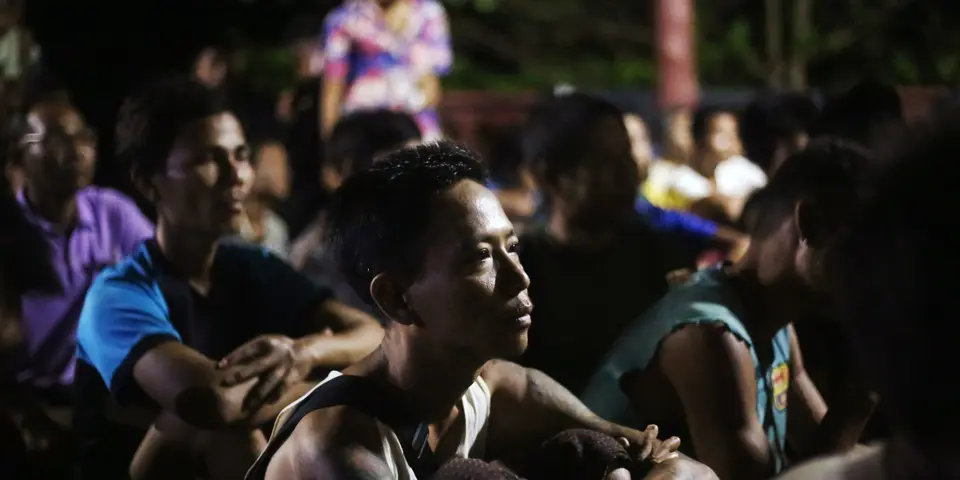
ASEAN Foreign Ministers Must Act Now to Free Myanmar’s Political Prisoners, Say Southeast Asian MPs
July 02, 2025

JAKARTA, 2 July 2025— ASEAN Parliamentarians for Human Rights (APHR) is calling on ASEAN Foreign Ministers to place the immediate and unconditional release of all political prisoners in Myanmar at the top of the agenda for the 58th ASEAN Foreign Ministers’ Meeting (AMM), scheduled for 8–9 July 2025 in Kuala Lumpur.
APHR, a network of more than 175 current and former elected policymakers in Southeast Asia, warns that continued silence only deepens the suffering of thousands unjustly imprisoned under Myanmar’s brutal military regime.
“ASEAN can no longer postpone justice,” said Mercy Chriesty Barends, Chairperson of APHR and Member of the Indonesian House of Representatives. “The continued detention of political prisoners is a stain on our regional conscience. Their release must be a top priority at the AMM and an integral part of ASEAN’s engagement with Myanmar moving forward.”
Among those 29,338 unjustly detained are more than 5,000 women and at least 610 children and youth under the age of 18. Torture, denial of medical treatment, psychological abuse, and imprisonment under inhumane, degrading conditions are widespread. These are not isolated abuses—they are systematic, deliberate, and emblematic of the junta’s contempt for life and law.
The ASEAN Leaders’ Meeting (ALM) held on 24 April 2021 acknowledged calls for the release of political prisoners, but four years later, these calls remain unheeded. The Five-Point Consensus (5PC) has failed to address the issue, allowing the junta to continue its violent campaign against its own people with impunity.
“Recognition without enforcement is meaningless,” Barends added. “We need a principled ASEAN, one that not only listens, but acts.”
Conditions in Myanmar prisons reveal a system designed not merely to detain but to destroy. According to the Political Prisoners Network–Myanmar (PPNM), at least 130 political prisoners have died in custody. Of these, 50 perished during the 7.7 magnitude earthquake at Obo Prison on 28 March 2025—including a pregnant woman who was denied critical medical care. Another 60 died from untreated illness or a complete lack of access to health services. Nineteen others were tortured to death or subjected to conditions amounting to slow execution.
These deaths are the tragic consequence of detention conditions that defy all standards of humanity and legality. Torture, beatings, solitary confinement, and denial of legal counsel are routine. Spoiled food, overcrowded cells, and unhygienic facilities are the norm. Pregnant women and LGBTQ+ detainees endure degrading abuse, including strip searches and sexual violence. Children are surveilled by male guards through CCTV in so-called ‘education centers’, while survivors of the March earthquake were left to suffocate under collapsed rubble, without evacuation or emergency care.
As one former political prisoner told the APHR delegation during the fact-finding mission in Mae Sot, Thailand in May 2025, “For two years and 2 months, I survived by drawing birds on the wall and counting the days by using pieces of bricks. Some of my cellmates never made it out.”
These atrocities amount to flagrant violations of international law. They breach the Convention Against Torture, the Universal Declaration of Human Rights, the Geneva Conventions, and the ASEAN Charter itself, which commits member states to the rule of law, good governance, fundamental freedoms and human rights.
“The junta’s utter disregard for legal norms and human dignity has made Myanmar a failed state in every moral and legal sense,” said Wong Chen, APHR Board Member and Member of the Malaysian Parliament. “No ASEAN dialogue is credible if it refuses to confront these atrocities. What we are witnessing is not ambiguity—it’s abandonment.”
The junta’s continued manipulation of amnesty announcements further underscores the farce. In April 2025, the regime claimed to release 4,000 prisoners—yet only 348 political detainees were freed. Many of those released were re-arrested, forced into hiding or exile, or left without access to reintegration support. The regime persists in treating political prisoners not as citizens but as threats to be erased.
“Acknowledging political prisoners without securing their release is not diplomacy—it’s deflection,” said Charles Santiago, APHR Co-Chair and former Malaysian Member of Parliament. “We need action, not ambiguity. We need courage, not consensus without consequence.”
As the AMM approaches, APHR reiterates the call for the Ministers to make the release of all political prisoners, including State Counsellor Aung San Suu Kyi and President U Win Myint, a central issue on the formal agenda. ASEAN must also set time-bound benchmarks for progress, support independent prison monitoring mechanisms, and take concrete steps to dismantle the culture of impunity that emboldens the junta.
“Every day ASEAN hesitates, more lives are lost,” said Rangsiman Rome, APHR Board Member and Member of the Thai Parliament. “The moral weight of inaction is too great. ASEAN must choose now: complicity or conscience.”
APHR calls on civil society, media, and governments across the region to amplify this urgent demand. ASEAN cannot continue to assert its relevance while ignoring the horror unfolding in its own neighborhood. The region must remember: there can be no peace without justice, and no future without freedom.
Free Myanmar’s political prisoners now.
ASEAN Parliamentarians for Human Rights (APHR) was founded in June 2013 with the objective of promoting democracy and human rights across Southeast Asia. Our founding members include many of the region's most progressive Members of Parliament (MPs), with a proven track record of human rights advocacy work.